About the programme
| Lenght of studies | 1.5 years | Language | English |
| Scope of studies | 90 ECTS credits | Tuition fee per year | 6000€ |
| Qualification awarded | Master in Computing | Start of studies | 01 September |
| Application period | 1 November – 1 May* / 1 July** | Application deadline | 1 May * / 1 July** |
* For applicants from non-EU/EFTA countries
** For applicants who do not need a Lithuanian visa and non-EU/EFTA applicants, if there is a Lithuanian embassy in their home country
The Computer Modeling programme ensures to use computer modeling technologies and participate in their development, to imply the generation and analysis of hypotheses and ideas, scientific, empirical and applied research, interpretation of results, to develop research and analytical skills, professional ethics code, to generate reports.
Why this programme?
- The specific character of programme is constant improvements of various kind, as adding courses of cloud computing, of images and signal processing, of web services, etc.
- Students will gain also skills to research work, including HPC (high-performance computing), Grid/ Cloud computing, or using supercomputer.
What's after?
- Positions in enterprises in the national or private sector where the applied practical or scientific computing is undertaken or problems in physical sciences are solved using mathematical or computer models that benefit by modern technologies.
- A graduate can be employed at universities, research and computer design institutions, industry, private, banking and insurance sector, other companies, where critical thinking, research and analytical skills, usage of computation and IT, foreign languages are required.
Programme specific requirements
- The program admits persons who have completed undergraduate university studies in the following fields: biomedicine, physical sciences and technology.
- Candidates are expected to have a strong undergraduate background in computer science, including programming.
- English language proficiency: the level not lower than B2 (following the Common Framework of Reference for Language approved by the Council of Europe).
- Assessment of motivation (essay and interview) is held by electronic means remotely.
In addition, all applicants have to fulfil general admission requirements.
Programme structure
|
Course unit title |
ECTS credits |
|
I YEAR |
60 |
|
SEMESTER 1 |
30 |
|
Compulsory courses |
25 |
|
Spatial Databases |
5 |
|
Methods of Cryptography |
5 |
|
Methods of Nonlinear Modelling |
10 |
|
Cybersecurity Technologies |
5 |
|
Optional courses* |
5 |
|
Programming in Cloud Computing |
5 |
|
Computational Geometry Algorithms |
5 |
| Digital Forensics | 5 |
|
SEMESTER 2 |
30 |
|
Compulsory courses |
25 |
|
Data Analysis |
5 |
|
Deep Learning |
5 |
|
Scientific Research Work |
10 |
|
Signal Analysis and Processing |
5 |
|
Optional courses* |
5 |
|
Multidimensional Data Visualization |
5 |
|
Information Security Management |
5 |
|
II YEAR |
30 |
|
SEMESTER 3 |
30 |
| Compulsory courses | 30 |
|
Master's Thesis |
30 |
*The supply of elective course might vary depending availability.
Contacts
Do you have any questions? Contact:
- Email:
This email address is being protected from spambots. You need JavaScript enabled to view it. - Phone: +370 5 219 5027
Study Programme Committee

Chair of the Study Programme Committee - Assoc. Prof. Dr. Severinas Zubė
- Assoc. Prof. Dr. Linas Bukauskas,
- Asist. Dr. Alminas Čivilis,
- Prof. Emeritus Habil. Dr. Feliksas Ivanauskas,
- Prof. Dr. Tadas Meškauskas,
- Assoc. Prof. Dr. Valdas Rapševičius,
- Rimgaudas Kalvaitis, Social Partner JSC "Teletower",
- Student's Representative.
